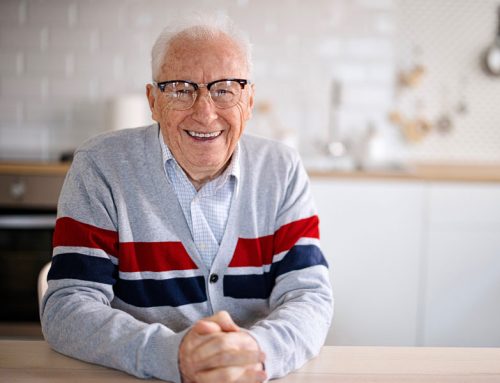
Physical exercise combined with a Mediterranean diet and Coenzyme Q10 supplementation should improve our chances for healthy ageing and for the prevention of chronic oxidative stress leading to neurodegenerative disease and heart disease.
There is a significant reduction in the rate of Coenzyme Q10 bio-synthesis during the ageing process and in ageing-related diseases. Mice studies have given us reason to believe that there is a direct relationship between a longer and healthier life and Coenzyme Q10 function in the mitochondria of the cells [Hernandez-Camacho 2018].
Human studies of Coenzyme Q10 status and healthy ageing
Professor Alehagen’s KiSel-10 study
Four years of daily supplementation with 200 milligrams of Coenzyme Q10 and 200 micrograms of high-selenium yeast resulted in significant health benefits for elderly community-living study participants as compared to placebo supplementation [Johansson 2015]:
- reduced risk of death from heart disease
- better maintenance of heart function
- reduced risk of chronic heart failure
- increased vitality
- increased physical performance
- better quality of life
Professor Mortensen’s Q-Symbio study
Ageing-related changes in the heart can lead to congestive heart failure, which is often a problem for older people. Two years of supplementation with 100 milligrams of Coenzyme Q10 three times daily resulted in significantly improved symptoms and survival in chronic heart failure patients as compared to placebo supplementation [Mortensen 2014].
Professor López-Lluch study
The plasma Coenzyme Q10 concentrations of elderly people were shown to be positively associated with levels of physical activity, with Coenzyme Q10:cholesterol ratios, and with lower lipid oxidative damage [Del Pozo-Cruz 2014].
Professor Döring study
Higher ubiquinol:ubiquinone ratios were significantly associated with increased skeletal muscle strength, indicating greater antioxidant protection from Coenzyme Q10 [Fischer 2016]. The protective effect of the Coenzyme Q10 is important because age-related loss of skeletal muscle strength is associated with physical disability, loss of quality of life, and death.
Professor López-Miranda study
Long-term consumption of a Mediterranean diet supplemented with Coenzyme Q10 provides health benefits for elderly men and women and prevents the chronic oxidative stress that is associated with heart disease and neurodegenerative diseases [Gonzalez-Guardia 2015].
Professor Quiles study
Alveolar bone is the term for the bone that contains the tooth sockets that hold the teethin place. Supplementation with Coenzyme Q10 counteracts the age-related negative effects of omega-6 polyunsaturated fatty acids on alveolar bone loss, a major feature of periodontitis [Varela-Lopez 2016].
Coenzyme Q10 as an anti-ageing therapy
Coenzyme Q10 must be regarded as the most important supplement for elderly men and women.
It is a substance that is essential for the process of cellular ATP energy production. It is an important fat-soluble antioxidant. It improves endothelial function. It has anti-inflammatory properties.
There is evidence that adults produce less Coenzyme Q10 as they get older [Kalén 1989] and evidence that it is practically impossible to make up for the loss of Coenzyme Q10 bio-synthesis by careful eating [Judy 2018].
Daily supplementation with a well-formulated Coenzyme Q10 preparation can alleviate ageing symptoms and retard the onset of ageing-related diseases [Hernandez-Camacho 2018].
Read our key article about CoQ10 and cardiovascular health in elderly people
Sources
Del Pozo-Cruz, J., Rodríguez-Bies, E., Navas-Enamorado, I., Del Pozo-Cruz, B., Navas, P., & López-Lluch, G. (2014). Relationship between functional capacity and body mass index with plasma coenzyme Q10 and oxidative damage in community-dwelling elderly-people. Experimental Gerontology, 5246-54.
Fischer, A., Onur, S., Niklowitz, P., Menke, T., Laudes, M., Rimbach, G., & Döring, F. (2016). Coenzyme Q10 Status as a Determinant of Muscular Strength in Two Independent Cohorts. Plos One, 11(12), e0167124. doi:10.1371/journal.pone.0167124.
Gonzalez-Guardia, L., Yubero-Serrano, E. M., Delgado-Lista, J., Perez-Martinez, P., Garcia-Rios, A., Marin, C., & Lopez-Miranda, J. (2015). Effects of the Mediterranean diet supplemented with Coenzyme Q10 on metabolomic profiles in elderly men and women. J. Gerontol. A Biol. Sci. Med. Sci. 70, 78–84. doi: 10.1093/gerona/glu098
Johansson, P., Dahlström, Ö., Dahlström, U., & Alehagen, U. (2015). Improved Health-Related Quality of Life, and More Days out of Hospital with Supplementation with Selenium and Coenzyme Q10 Combined. Results from a Double Blind, Placebo-Controlled Prospective Study. The Journal of Nutrition, Health & Aging, 19(9), 870-877. doi:10.1007/s12603-015-0509-9
Judy, W. V. (2018). Private communication.
Kalén, A., Appelkvist, E. L., & Dallner, G. (1989). Age-related changes in the lipid compositions of rat and human tissues. Lipids, 24(7), 579-584.
Varela-Lopez, A., Giampieri, F., Battino, M., and Quiles, J. L. (2016). Coenzyme Q and its role in the dietary therapy against aging. Molecules 21:373. doi: 10.3390/molecules21030373
The information presented in this review article is not intended as medical advice and should not be construed as such.









Leave A Comment